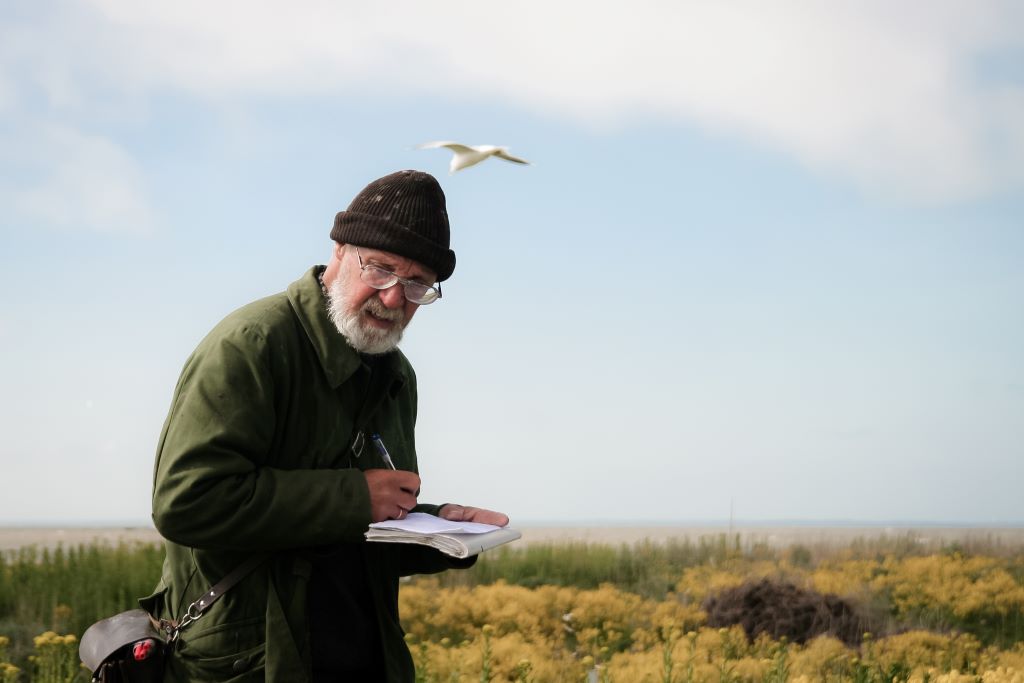 An ornithologist studies birds, but there is no clear job description for the profession of ornithology. Many ornithologists do not work exclusively with birds. They may be ecologists, geneticists, wildlife biologists, land managers, teachers, researchers, outdoor educators, or tour leaders. They may work for federal or state government agencies, non-profit organizations, for-profit companies, or free-lance. They may work exclusively with birds or only as a small part of their job. Ornithologists may work in the field with populations of wild birds, in the laboratory , or on data on their computer. They may specialize in a particular bird group or be a generalist.
An ornithologist studies birds, but there is no clear job description for the profession of ornithology. Many ornithologists do not work exclusively with birds. They may be ecologists, geneticists, wildlife biologists, land managers, teachers, researchers, outdoor educators, or tour leaders. They may work for federal or state government agencies, non-profit organizations, for-profit companies, or free-lance. They may work exclusively with birds or only as a small part of their job. Ornithologists may work in the field with populations of wild birds, in the laboratory , or on data on their computer. They may specialize in a particular bird group or be a generalist.
What is Ornithology?
A fledgling ornithologist needs to take basic courses in science and math in college because understanding any group of organisms requires a background knowledge of anatomy, physiology, ecology, evolution, genetics, cell and tissue structure, and population biology. At least one and preferably two years of chemistry should be taken. Mathematics, at least through analytic geometry and preferably a year of calculus, is very helpful, as is statistics. Writing and English courses are very helpful. Appropriate college majors are biology, wildlife biology, zoology, or some equivalent. The goal should be to get a well-rounded education in the sciences. In high school, take as many science, math, and writing/English courses as possible.
If you are searching for a college with the appropriate degrees and courses or one which offers one or more ornithology courses (most four-year colleges do), check with your high school counselor or use a search engine on the WWW to find colleges in your area; then check their websites. I am not aware of any university or college that offers a degree in Ornithology. ( Sturt University in Australia offers a postgraduate diploma or certificate in the field.) There are a few courses of study in the field, but no online degree courses that I am aware of. See FatBirder for more information.
Sometimes a Master’s degree is required. The difference between a Bachelor of Science and a Master of Science degree is that, in addition to graduate level course work, the student does a research project and presents the project verbally and in writing to a committee of professors. This experience allows the student to get advanced training in the field of ornithology that cannot be had by coursework .
See American Ornithology , eBird, Careers With Animals , and the Bureau of Occupational Statistics for additional information.

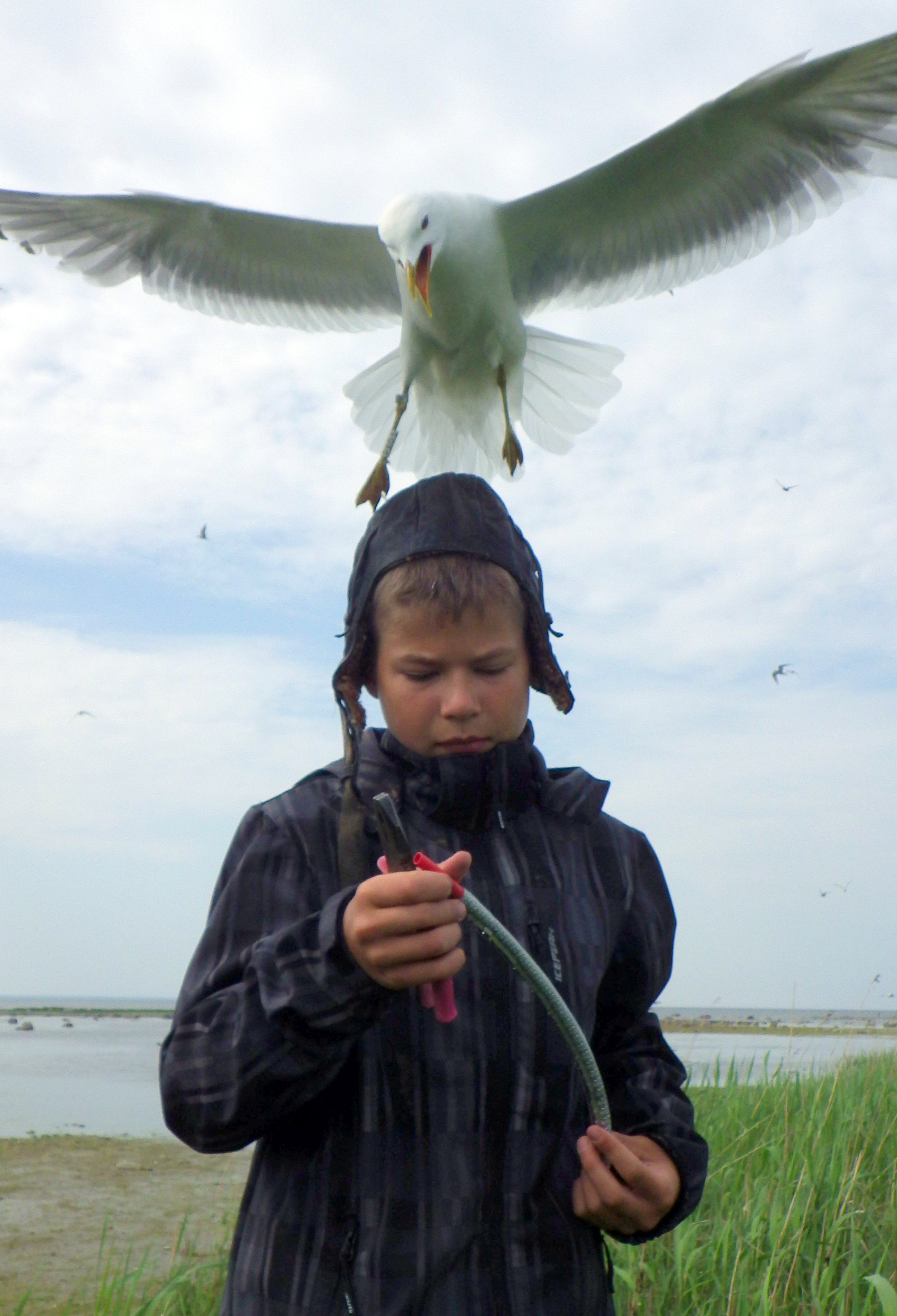
Then there is the PhD . The Bachelor’s degree should take between 4-5 years, the Master’s 2-3 years, and the PhD another 3-5 years (a Master’s is not necessary for a PhD, however). The PhD requires more graduate level coursework and another thesis research project, along with oral and written examinations. Jobs for the PhD-prepared ornithologist include all of those above plus additional opportunities such as teaching at the university level and doing independent research. See Guide To Graduate Studies in Ornithology in North America for more information.
There are jobs available to those with a bachelor’s degree but they are rarely high paying ones. Jobs in ornithology and environmental opportunities may not be as abundant or well-paid as those for computer software designers, but they are there and will continue to be as long as people are interested in birds and other wildlife. There are other jobs in natural resources. Full time paid positions with zoos, wildlife parks, veterinary medicine, and conservation that are exclusively devoted to birds are not common. You may be interested in Environmental Science Jobs, in general. See EnvironmentalScience.org , Green Careers, or Green Degrees and Careers for more info. Ornithology Exchange lists jobs in the field.
With such a background you might also be interested in biomedical science jobs.
Importantly, you need to sell yourself. You do this by crafting a resume, also called a curriculum vitae or C.V. Employers and recruiters go through thousands of applications when a job is posted. To make sure you have the best chance of being considered by the employer, a professional resume writer is needed. I have hired dozens of people and read hundreds of resumes, rejecting most and accepting a few for interviews, so I know how important a good resume is. It would be a good idea to have some help so you might want to enlist the help of experts like those at the Resume Writing Lab who can provide CV writing help online at Resume Writing Lab scientific writing service.
Common Questions:
Salary: There is no standard or even average starting salary for an ornithologist as few people are hired strictly as ornithologists – they are hired as teachers, professors, wildlife biologists, environmental scientists, environmental educators, ecologists, tour leaders, etc. so the salary range applies to those fields and the organization that is hiring. The salary also depends on the level of education one has attained. So one could make very little or do quite well.
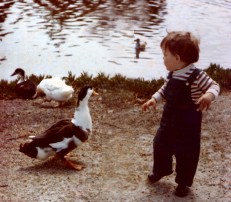
Tools: I am often asked what tools an ornithologist uses. This is hard to answer, as ornithologists do lots of different things. In the field they may use binoculars, telescopes, nets or traps, bands, measuring and weighing equipment, notebooks, stakes, markers, surveying equipment, geographical positioning system instruments, etc. In the lab or office they may use microscopes, chemicals, test tubes, syringes, slides, vials, cages, computers, calculators, etc. Some ornithologists use lots of tools, some very few. Depends simply on what they are doing.
Typical Day: this is also a hard question to answer. A typical day depends on who the ornithologist is and what job he/she has. I teach, talk to students and colleagues, go to meetings, read books and articles, answer e-mail, work on my website, go out in the field to collect research data on birds which I then bring back to my office and analyze with statistics. I might write a grant proposal in order to generate funding for a project. Then after a few months I might be able to write a research paper for a journal if the research was good enough. I may give bird walks or talks to the general public and occasionally I do a wildlife assessment for some environmental project.
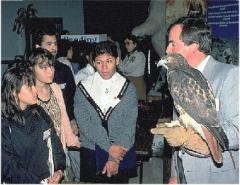 I serve on a bunch of wildlife or environmentally oriented committees and I am also writing another book on birds.
I serve on a bunch of wildlife or environmentally oriented committees and I am also writing another book on birds.
How did I get interested in ornithology? I had an excellent instructor in College.
What is my favorite bird? I have none; I find them all fascinating.
For specific questions , e-mail me, the ornithologist
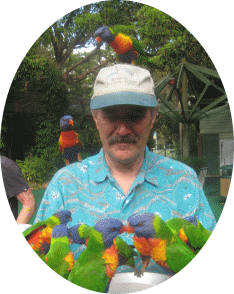
I have installed many thousands of barn owl boxes in San Diego county over the last 25 years. I am looking for a person, possibly a student to help with installations. I can compensate this person fairly. Also there is an opportunity to study the pellets contained within the old nest boxes. One could write a thesis to prove the efficacy of owl boxes in Southern California suburbs for organic rodent control?
I suggest you contact San Diego State or UC San Diego to see if someone is interested.
If this is still available, I am highly interested!! I have experience installing wood duck boxes and have a degree in Wildlife Ecology and Conservation.
Pingback: To Be an Ornithologist: watching birds as a job – Ornithology
Hi my name is Haripriya l like and i have interest to become ornithology. I am studying 8 class. Please say to me that what i should study to become ornithology. I have interest in zoology. I am studying sri chaitanya school in ongole (vip road)near HDFC bank ) commonly ongole4. I am studying in Medicon. I all competitive exams in medicon they conduct 4 subjects (botany,zoology,phy,che)weekly ones and monthly maths. Weekely exam 760marks month30 marks they will conduct. In all conducted exams upto now i got all time 1st in zoology awalys 171+. Sorry to say this but friends get awalys 85+ i now that you all members thinking that i am saying that i like zooloyg because of only i am getting good marks no. You are wrong. I got all subjects150+.but like to learn more about nature. Particularly about birds.whats why i am becoming orithologest.please i am requesting all who read my comment please help me that what I should study to ornithology. Please please pppppppppppppppppppppllleeeeaaaaaassssseeeeee.
Haripriya, if you haven’t done so already, read my page on careers in ornithology at https://ornithology.com/careers/. This should tell you what you need to know. Then if you have any specific questions, please email me again.
HI Haripriya. I can understand your eagerness to be an ornithologist. If you want to purse ornithology as a study, then you can take Biology, Physics, Chemistry (BZC) in your intermediate level. You can take basic Zoology in your graduation. There are various institutes in India that are working on birds. Eg: BNHS, SACON. They take volunteers and interns. Send an email to them and do volunteering during your summer or winter vacation. This will you teach you basic understanding in the field. You have a long way to go. Keep your enthusiasm cheered up. Anything else you want to discuss, write me a mail to srijaph0@gmail.com
All the best 🙂
As much as I love birds and ornithology, do you really think that getting a degree in ornithology is a good idea? With how expensive college is and everything…
Good question. You should seek a career that you love since you’ll spend so much time at it. Ornithology or not, go to college! Yes, it is expensive but well worthwhile. You’ll make far more money than a high school graduate and have a more satisfying job. After a year or two of college, you will have a much better idea about what career to pursue.
Best wishes.
I want to subscribe to you Blog but unfortunately each time they told me “There was an error when subscribing. Please try again.’
Sorry you have been unable to subscribe to my blog. I will ask my network technician to investigate. Roger Lederer
Pingback: Bird Talks – Ornithology
I’m studying 12th and I’m going to complete my 12th stranded and I’m interested to become ornithologist.I love birds and I love to care them.so, kindly instruct me to serve as an ornithologist. Please help me sir.
Please go to my careers page at Ornithology.com and you will find a good deal of information on becoming an ornithologist.
Hello. Is it possible to become an ornithologist with a degree in Environmental Science?
Sure, if you have the necessary biological background.
I am 74 and live in San Diego. In 1972 obtained a B.S. in Zoology concentrated in cell study with Chemistry minor from Arizona State University. I am retired. I have been interested in birds since I was a little boy and I want to get back to “bird stuff.” Please suggest some approaches for me to take. I shall welcome any suggestions. I am on “a budget.” Thank you for your time.
Well, for free you can read the “lectures” on my website. They are modified versions of the lectures I gave in my college ornithology classes when I was teaching. And feel free to email me with any questions you might have.
Well, for free you can read the “lectures” on my website. They are modified versions of the lectures I gave in my college ornithology classes when I was teaching. And feel free to email me with any questions you might have.
Hi my name is Haripriya l like and i have interest to become ornithology. I am studying 8 class. Please say to me that what i should study to become ornithology. I have interest in zoology. I am studying sri chaitanya school in ongole (vip road)near HDFC bank ) commonly ongole4. I am studying in Medicon. I all competitive exams in medicon they conduct 4 subjects (botany,zoology,phy,che)weekly ones and monthly maths. Weekely exam 760marks month30 marks they will conduct. In all conducted exams upto now i got all time 1st in zoology awalys 171+. Sorry to say this but friends get awalys 85+ i now that you all members thinking that i am saying that i like zooloyg because of only i am getting good marks no. You are wrong. I got all subjects150+.but like to learn more about nature. Particularly about birds.whats why i am becoming orithologest.please i am requesting all who read my comment please help me that what I should study to ornithology. Please please pppppppppppppppppppppllleeeeaaaaaassssseeeeee.
I think most of the information you are looking for are on my website, Ornithology.com, under Careers. Please go to https://ornithology.com/careers/
Hi there,
I was just wondering if there’s any visual requirements or any specific colour vision requirements in order to become an ornithologist? Even if there’s no official requirements would you say any necessary from your experience? As I have a mild colour vision deficiency but I am interested to have a career in ornithology.
Kind regards,
Hisham
A vision impairment might be a bit of a liability, but not a serious problem. Pursue your career as an ornithologist.
Hello!
I’m a Brazilian biologist and I’m currently having several doubts related to what path to follow regarding my career/education. I studied birds during my bachelor’s degree course and, also, during my master’s degree course. I am, now, considering to apply for a PhD course. However, I still don’t know quite well what area i am most interested to study using birds as a model organism, if biogeography, ecology, zoology. I was wondering if there is a way of working in one or two of these areas before applying for the PhD course. I’m afraid that, if I do not apply now, I won’t have the same enthusiasm to pursue my PhD (i’m 28 years old). Here, in Brazil, it’s being really difficult to find jobs related to research outside the academy; also, it is not easy to find “internships” in projects without doing it for free, which is not viable. I don’t know how ornithology works abroad, but I wonder if it is possible to find work in research that is not volunteer. I found some interesting offerings at the online portal “ornithology exchange”, but I’m still having second thoughts if I should try this path or not. Do you have any advise that could help me?
Thank you,
Michelle.
Michelle, you are correct, it is difficult to find internships that are paid. Instead of trying to find an internship you might simply search the research literature and read several papers. An internship will give you only a very narrow view of one project but by reviewing the recent literature in ornithology you will be able to cover much more in order to find a specific field that interests you.
Hello!
I am a third-year Neuroscience major (English minor) and for the longest time I have struggled with the idea of spending the rest of my life as a neuroscientist. Over winter break, I concluded that the one career that would bring me genuine joy and fulfillment is Ornithology. Is it possible to enter graduate school for Ornithology with a bachelor’s in Neuroscience? It’s literally half biology courses and half psychology with additional courses in math, chemistry, and physics. Any and all help is much appreciated.
Side note: Mourning Doves have been mating outside my window for a few weeks now. There’s only one male left that keeps calling but it’s because he sprints—as fast as a dove can—at every female that lands beside him and scares them away. It’s very funny. He just doesn’t seem to get it. Hopefully, he learns.
You appear to have a decent background in science, so I’m sure you can pursue a degree aimed at ornithology. You might need some field biology/ecology courses and of course an ornithology course or two. Just look for a grad school that fits your needs.
I was wondering if there were any alternative paths you recommend that would enable me to work in the field with birds?
BACKGROUND: I received my degree in Political Science with the intent of military service. I have a very strong GPA, but it is lacking biology courses. This course has served me well though and I am about 5 years from retirement. It has taken its toll though and I no longer have any desire to work in a similar field. I have always been an avid birder and outdoorsman. My life list is pretty robust and I spend all my free time (what little of it there is) in the pursuit of birds. I will likely graduate with a masters soon, but it will be oriented towards some military discipline due to the nature of the school/career. Although under 40, the idea of pursuing another bachelors, masters, and a PhD is perhaps too daunting and expensive (even after retirement) at this juncture in my life. Not impossible but fairly improbable. I could survive on a smaller wage as it should be augmented by my military pension. I would very much like to work in the field vs lab/rehabilitation center. I would have no issue serving as an assistant/technician/laborer as long as it involved the study/conservation of birds. Any recommendations would be appreciated. I have no issue pursing new degrees, but doubt I could carve out the full 7 years outline above in one increment. Birding is genuinely what keeps me going. I know its an odd question, but any input is appreciated.
Clayton, look at https://ornithologyexchange.org/jobs/board/ . There are lots of jobs there , mostly volunteer, but some with low pay. WIth your background you could probably get a low paying or volunteer position but probably nothing that will pay a decent wage. But you never know.
Pingback: The Ornithologist – Ornithology
Pingback: So You Need to be an Ornithologist – Ornithology - Specialpets
Pingback: So You Want to be an Ornithologist – Ornithology - NimasPark
Pingback: So You Want to be an Ornithologist – Ornithology - Pet Blog
Thanks for sharing his perfect article with us
Pingback: What is a Person Who Studies Birds Called? - The study of birds is called what?
VERY NICE ARTICLE THANKS
What are the employment prospects for ornithologists with varying levels of education, and how does salary potential vary across different roles within the field?